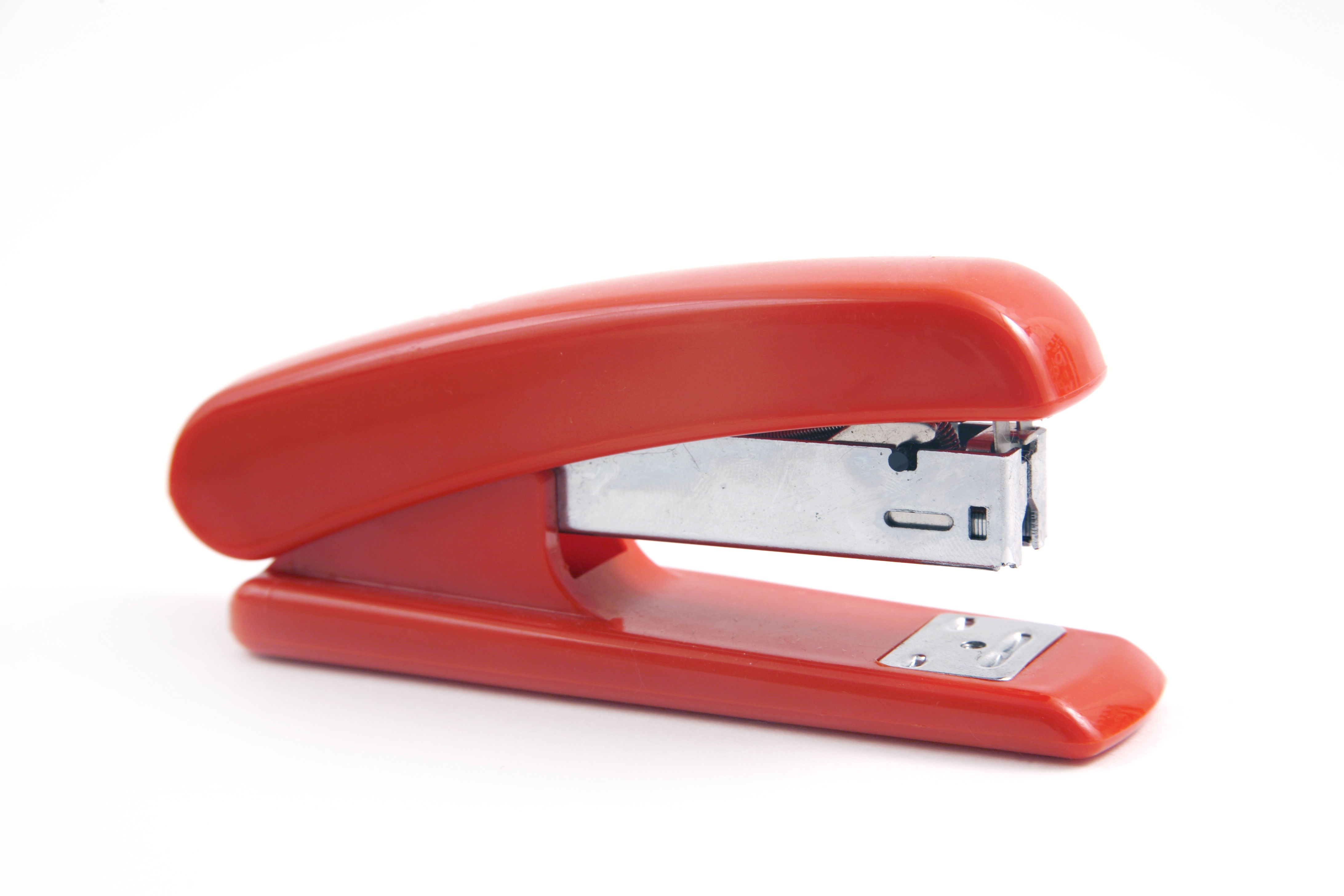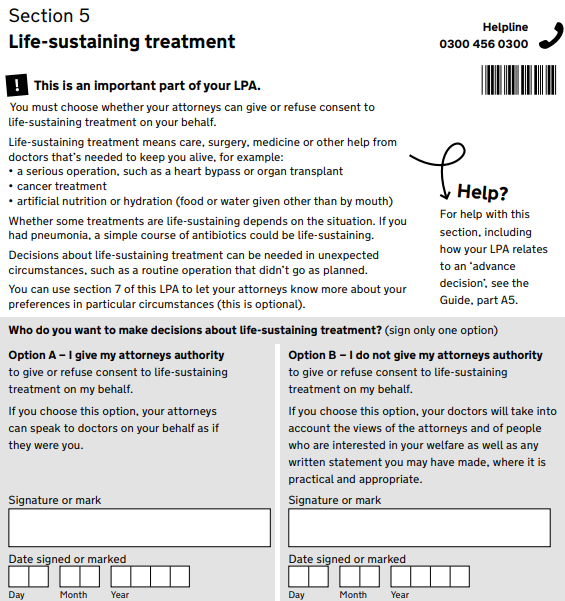40 Common errors on LPAs
The Office Of Public Guardian (OPG) estimates that approximately over 10,000 LPAs per month are completed incorrectly. Thousands more were found to have errors when they were attempted to be used.
Many of these errors occur because people try to save money by doing it themselves or using cheap online forms as guides. Some even pay a premium to ask a solicitor to help, who then does not oversee or validate the signing.
1. Missing pages

It’s essential to take the time to review your applications to check the numbering and make sure you have the correct pages of the forms before you send them to OPG. Continuation pages and additional attorneys are often missed.
2. Mixing pages
When people make more than one LPA application – for example, if they take out a health and welfare LPA and property and finance LPA together or make an application alongside a partner – sometimes they unintentionally mix up the pages on the different forms. If submitting multiple LPA applications, Fern Wills and LPAs always keep each in a separate plastic wallet. The LPAs, when returned, will be the same pages.
3. Signing the application in the wrong order
Many LPA applications OPG receive are signed in the wrong order. If you’ve used continuation sheets (part of sections 1 - 9), they need to be signed and dated at the same time. Do not future date (dating the signature incorrectly so the signatures appear in the correct order); the donor needs to capture their wishes first and appoint attorneys, then the certificate provider needs to certify that the donor can make the decision to create the LPA, and the attorney must agree to act. The applicant, either donor or attorney, signs section 15 at the end.
4. Family members as certificate providers
Ensure that those signing as certificate providers have distinctly separate relationships from donors, attorneys, and replacement attorneys. For example, a certificate provider cannot be the son or daughter of anyone involved, even if the name is different. OPG can conduct checks to determine a possible relative. It’s also vital that full names are used. If they require a new section 10, it must be the same person as before.
5. Not signing in the appropriate boxes

In many applications, people have signed the sticky labels or notes that have been provided for guidance rather than in the signature box itself. Some cut-price providers fail to provide enough guidance to ensure that their clients sign the documents themselves and within the appropriate boxes.
6. Pencil & Ink
If you use a pencil, OPG can’t tell how (or whether) an LPA application has been amended or who did it. LPA applications with a pencil will not be registered. Black ink is preferred because it is easier to read by Optical Character Recognition (OCR) scanners used to read the documents, though blue ink is accepted if it is legible.
7. Bound applications & Staples

Once OPG receives an LPA application, it scans the pages individually for its records. If an application is bound, it needs to be removed. If it can’t, it cannot provide clear, readable copies for the scanning system. Binding can be done once the application is returned. Don’t use staples; they can damage the document when OPG removes them to scan the pages.
8. Being unclear in the life-sustaining treatment section
This isn’t just a tick box on the health and welfare form. You need to specify what decisions your attorney can make; if this isn’t clear or has contradictory instructions, they cannot process the application. The correct box must be ticked, and signed before following sections.
9. Unlawful instructions
There are many legal cases on what is an unlawful instruction; the layperson (DIY or cheap form) is unlikely to know all these; therefore, you are advised to seek legal advice on any instructions you want to include in your LPA to ensure it is lawful. If an instruction is unlawful, the OPG has a statutory duty to seek guidance from the Court of Protection. This won’t always invalidate your LPA but will slow the registration process. An example of an illegal request would be something that implies euthanasia or assisted dying.
10. Correction Fluid

If you use correction fluid (Tippex), OPG can’t tell how (or whether) an LPA application has been amended or who did it. LPA applications with these amends will not be registered.
11. Photocopies
Photocopies will not be accepted unless they are legally certified.
12. Signing the form in the wrong order
You’ll be told on the form who has to sign it first and then who next. The donor must sign the LPAs first, then the certificate provider, then the attorneys, and after that, the person registering the LPA must sign again (either the attorney or the donor).
13. Missing information
Your LPA will not be approved if it lacks information, including the date, and it will not be registered if missing signatures or details make it legally invalid.
14. Incorrect witnesses
The document has to be signed and witnessed, but parties often use witnesses who aren't allowed to be used. For example, an attorney can't witness a donor's signature because there is a conflict of interest in doing so.
15. Not providing full names, addresses and date of birth

You’ll need to give your full name, including your middle name, and not just your initial and surname. You’ll also have to use complete addresses and dates of birth. The signature(s) must be witnessed. The witness(es) must write their full name and address and sign it.
16. Contradicting requests
A standard error is in appointment types – for example, appointing joint and several attorneys incorrectly. The donor might appoint attorneys to make decisions one way or another but then include instructions contradicting this. For example, if you have three attorneys appointed in your LPA, and the LPA says attorneys should act ‘jointly and severally’, you can't then include an instruction in the LPA to say that decisions are made by majority vote, as by acting jointly and severally, all of the Attorneys have equal power to act and make decisions.
17. Contradicting another document
A simple stroke of a pen on the P&F LPA can have consequences for a Will. A seemingly innocent statement on an H&W LPA can interfere with an advanced decision. Both LPAs have sections where the untrained or unobservant could create a cascade of unintended consequences that may be expensive, difficult, stressful or unlawful to fix.
18. Writing outside of the boxes

It does not matter whether you use a tick or a cross as long as it is clear what your intent was and it is within the confines of the boxes. Fern Wills uses the latest SWW-approved software to check and write your answers legibly within each box. It also clearly strikes through sections that are not required, making your intent clear.
19. Not completing section 5 of H&W clearly

It is common for people to miss a section if they are unsure of its meaning or of their own answer. The LPA will be considered invalid if it is not completed in full.
20. Incorrectly amending mistakes before registration
Mistakes found before the LPA is signed can be corrected. A cross must be put through the mistake, with the correction clearly next to it. The relevant people must sign and date the correction. Any corrections after the donor has signed the document make the LPA invalid. If you attempt to complete the documents online and notice a mistake after printing, you must start the process again. This is because you accepted that the previous copy was final.
21. Amending a new address or other details.
Many customers who do not have ongoing support for their LPAs make mistakes after registration. If you change address, name, or other significant details, the OPG can make those amendments for you if you provide key details and evidence. You just tell OPG if you or your attorney changes name or address. For name, they must send a copy of the marriage certificate or deed poll showing the new name. For address, supporting documents are not required.
22. Mistakes amending erros errors after registration
If you amend the LPA yourself after registration you will invalidate the LPA. This would mean a new LPA has to be made, or if capacity is lost, the lengthy and expensive process of Deputyship must commence.
23. Not paying promptly

Many of us have put off writing an LPA for many years or even had a recent scare that prompted us into action. Customers who DIY or use cheap online services often fail at the last hurdle. They often leave the LPA in a drawer to post or register later. Or they send it for registration and do not pay promptly. This will result in the LPA being ineffective or, if not paid, returned by the OPG.
24. Careful with gifts
Instructions about gifts often cause problems with property & financial affairs. This is because there are strict limits on the size and kind of gifts that attorneys can give on the donor's behalf.
Attorneys can only give gifts:
1) on customary occasions
2) to previously patronised charities,
3) reasonable in proportion to previous gifts
4) taking into account the overall amount that the donor has.
They can not give gifts of:
5) gifts intended to reduce inheritance tax
6) Creating or contributing to trust funds
7) Paying school fees other than immediate children
8) making-interest free loans
9) paying maintenance for n family member other than a spouse or children
The above gifts can be considered by an application to the Court of Protection.
25. When can attorneys make decisions
Most enquiries start with requesting the Property & Finance LPA to start only when the Donor loses capacity. This common mistake can cause intense distress for the family and, at best, be a huge inconvenience. This can make your LPA a lot less useful. Your attorneys might be asked to prove you do not have mental capacity each time they try to use the LPA. People do often lose capacity like the flick of a switch. It is a gradual process. Getting your loved ones to understand or admit they are at that stage can be very distressing for all concerned. There are many other times when capacity is there but the "Donor" could very much need some help.
26. Instruction on how attorneys act together
Most enquiries start with requesting the attorneys to work together or jointly. In some circumstances, this can make the LPA difficult to use, unworkable or invalid in the case of insufficient attorneys. If an attorney who has to work jointly passes away, it is as though all attorneys have died, and without a very carefully drafted clause, the LPA becomes invalid.
27. Insufficient attorneys
By having insufficient or no substitute attorneys, the LPA can become unworkable if one attorney is unable or unwilling to act. Most enquiries start with requesting the attorneys to work together or jointly. In some circumstances, this can make the LPA difficult to use, unworkable or, in the case of insufficient attorneys, invalid.

28. Too many attorneys
Too many attorneys without clear direction can lead to family squabbles or analysis paralysis, which can delay decisions.
29. The wrong attorneys
Often, Donors ask to have all their children as attorneys. Not to be helpful but out of a sense of loyalty to include them. This can lead to stress for attorneys who struggle with the duties, don't have time or live some distance away. It is always better to only have the attorneys you want and willing and able to help. There is always the option of having them as a replacement/ substitute attorney or asking Fern Wills to have a conversation with them to explain the duties and obligations.
30. Too personalised or generic
If the LPA is too prescriptive, then it can be difficult to understand, and the risk of family tension increases or errors being found at registration. If left almost blank and too generic, it may not truly reflect the personal wishes of the donor. After consultation, having a supporting Statement of Wishes and a professionally drafted LPA can avoid many of these issues. It can also then be written with anticipated future needs regarding digital assets.
31. Procrastination
Donors often start the process and procrastinate and draw out the process. Each month that passes increases the risk that it may be too late.
32. Delayed Registration
You do not have to register immediately, but it’s a good idea in case you’ve made any mistakes. If you delay until after the donor loses mental capacity, it will be impossible to fix any errors. This could make the whole LPA invalid, and it will not be possible to register or use it.

33. Continuation sheets
Continuation sheets need to be signed and added to the LPA. They are often missed, not signed before section 15, or not signed at all.
34. Discretionary Investment Management
Many people avoid using Discretionary Investment Managers (DIMs) because they do not fully understand them. Some of the terminology can be alarming, such as funds being held in the name of the Discretionary Fund Manager (DFM) or the DFM making decisions without consulting the client beforehand. It is important to carefully consider all options, as avoiding this type of investment can result in limitations on investment opportunities for income or pension or even lead to accounts being frozen or cancelled. Fern Wills & LPAs will give a very clear explanation of the best options for you and, of course, be very willing to consult with your IFA or recommend one for you for a second opinion at no cost.
35. Mistakes in preferences & instructions
They will sometimes misunderstand the difference between an instruction or a preference and, therefore, use the wrong language, which can invalidate an LPA. Others confuse the LPA with a Will and ask for things that only apply in a Will.
36. Confusing P&F with H&W LPAs
Donors write instructions regarding residential care in the Property & finance (P&F) LPA rather than the Health & Welfare (H&W) or financial request in the H&W.
37. Not informing institutions - Acting too late
The Powers Of Attorney are only useful when the relevant institutions are notified of their existence. When the Registered LPA is received, the banks, councils, accountants, financial advisors etc should be notified of the registered LPA.
38. Making decisions - acting too early
Bank accounts, cards and chequebooks are the property of the issuing bank. An attorney using these before the bank has acknowledged and accepted a registered LPA could be committing a criminal offence under the Computer Misuse Act sections 1 & 2.
39. Not keeping records
Professional LPA drafters keep records of the interview questions between themselves and the Donor. These records can be used as evidence to support the validity of a Power of Attorney if it is challenged. DIY, charity, or cheap online applications rarely have this support. Therefore, successfully defending a challenge could cost several times the price of drafting professional help in the first instance. Losing a defence could cost thousands plus extreme stress for all involved.
Bank statements are a source of record, both before and after attorneys act on behalf of the donor. Clear records of decisions and transactions should be kept from the moment the LPA is drafted until approximately six years after the donor's death.
40. Not sending a copy of the Advance Directive
An advance decision to refuse treatment is a legally binding written statement. It lets someone say what medical treatment they do not want to have in certain situations in the future. It’s sometimes called a ‘living will’.The donor can have an advance decision and an LPA.
If the donor makes an LPA after making an advance decision
Whoever the donor has chosen to make decisions about life-sustaining treatment (either their attorneys or doctors), might override what is written in the advance decision.When making decisions, the attorneys or doctors should consider any preferences and follow any instructions the donor put in their LPA.The donor may want to get legal advice, particularly if their advance decision and their LPA say very different things.NHS Choices has more information about advance decisions (opens in new tab).There's more about life-sustaining treatment, advance decisions and how health professionals must respond to someone's written wishes in chapter 9 of the Mental Capacity Act 2005 Code of Practice (opens in new tab).
41. Not using Fern Wills & LPAs

OK, a bonus one and a bit of cheeky self-promotion. So many people tell me they can do the paperwork themselves, and why would they use a professional when they can save money?
To reduce the stress and make sure it actually gets done!
You could probably have a go at fixing a gas leak, rewiring some electrics, servicing the brakes on your car, or diagnosing a concussion. I could probably have a good go at your job, but I am sure you would do it best. It is better to have the peace of mind of being among the 100% of Fern Wills clients who have their LPAs approved rather than risk being one of the 10,000 a month who "cheaped out" and failed. Errors can cost thousands and cause extreme stress. Do it right because you're doing it for them.


